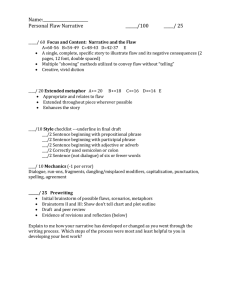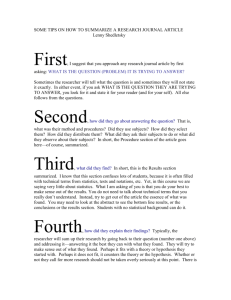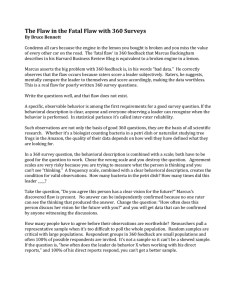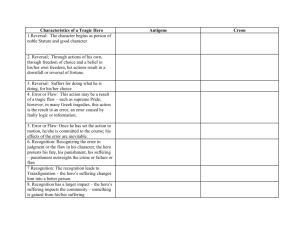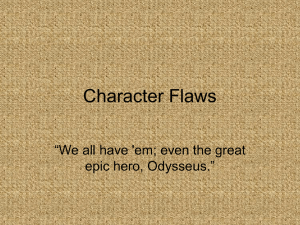Example of Paraphrase (Hamlet's Observations on Human Nature)
advertisement
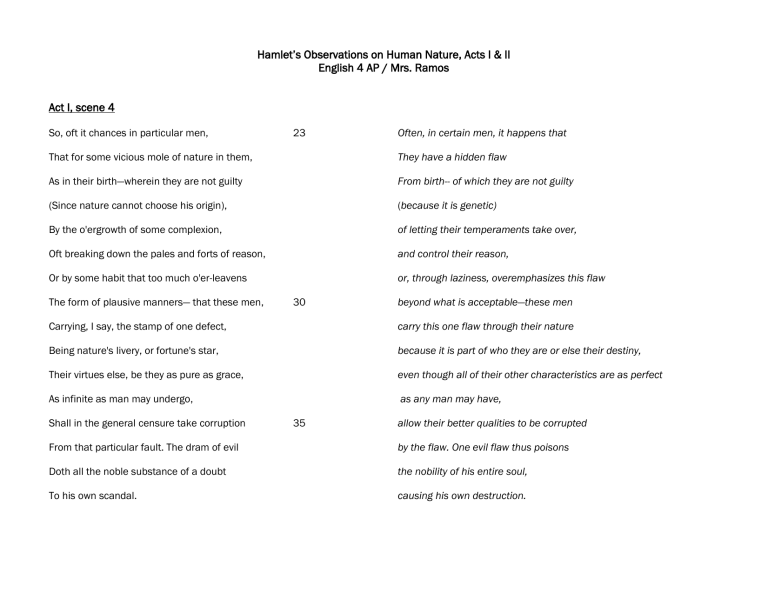
Hamlet’s Observations on Human Nature, Acts I & II English 4 AP / Mrs. Ramos Act I, scene 4 So, oft it chances in particular men, 23 Often, in certain men, it happens that That for some vicious mole of nature in them, They have a hidden flaw As in their birth—wherein they are not guilty From birth-- of which they are not guilty (Since nature cannot choose his origin), (because it is genetic) By the o'ergrowth of some complexion, of letting their temperaments take over, Oft breaking down the pales and forts of reason, and control their reason, Or by some habit that too much o'er-leavens or, through laziness, overemphasizes this flaw The form of plausive manners— that these men, 30 beyond what is acceptable—these men Carrying, I say, the stamp of one defect, carry this one flaw through their nature Being nature's livery, or fortune's star, because it is part of who they are or else their destiny, Their virtues else, be they as pure as grace, even though all of their other characteristics are as perfect As infinite as man may undergo, as any man may have, Shall in the general censure take corruption 35 allow their better qualities to be corrupted From that particular fault. The dram of evil by the flaw. One evil flaw thus poisons Doth all the noble substance of a doubt the nobility of his entire soul, To his own scandal. causing his own destruction. Act II, scene 2 I have of late—but wherefore I know not— lost all my mirth, for- 282 gone all custom of exercises; and indeed, it goes so heavily with my disposition that this goodly frame, the earth, seems to me a sterile promontory; this most excellent canopy, the air, look you, this brave 285 o'erhanging firmament, this majestical roof fretted with golden fire, why, it appears no other thing to me than a foul and pestilent congregation of vapours. What a piece of work is a man, how noble in reason, how infinite in faculties, in form and moving how express and admirable in action, how like an angel in apprehension, how like a god: the beauty of the world, the paragon of animals. And yet to me what is this quintessence of dust? Man delights not me— 290

